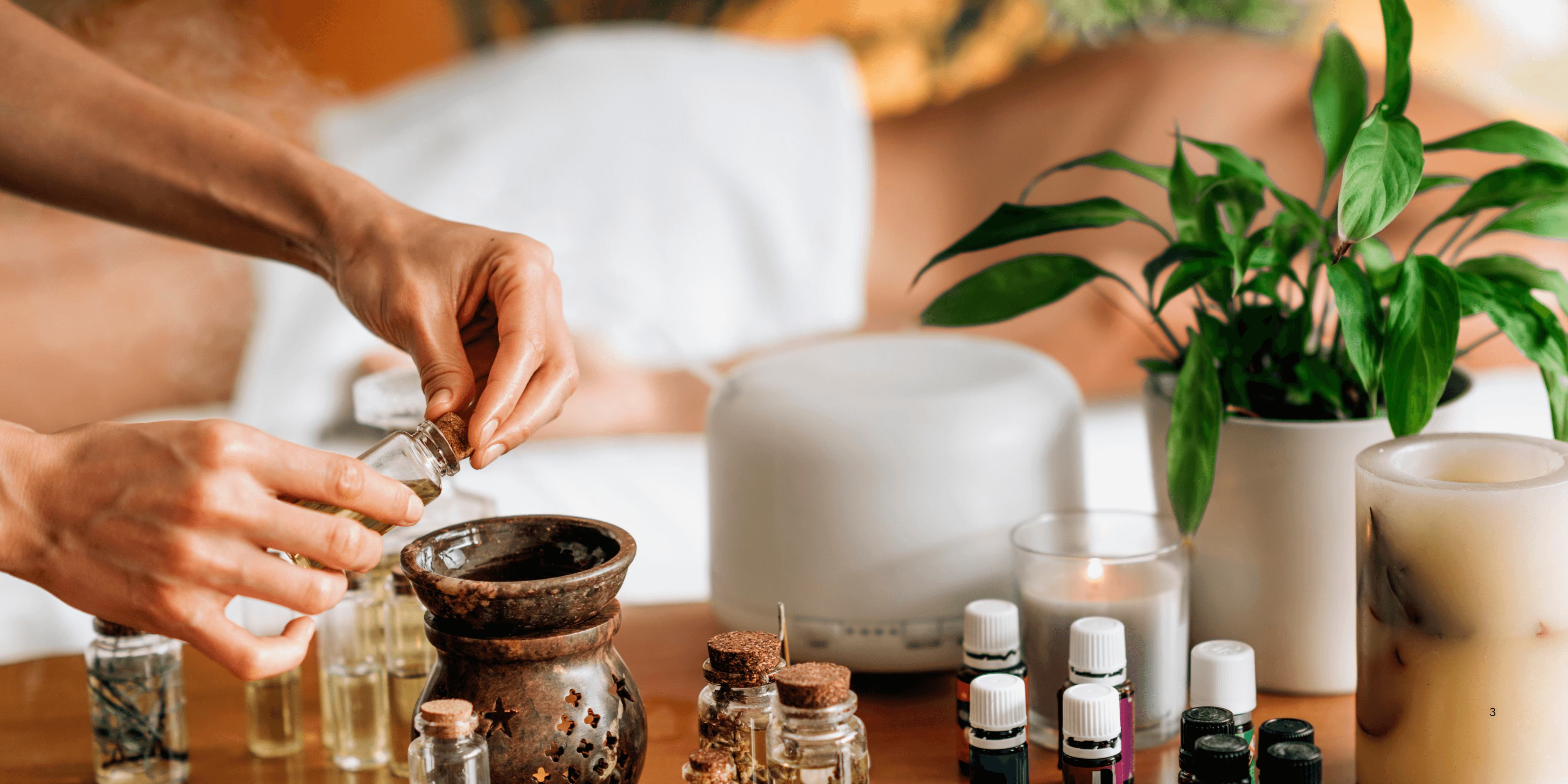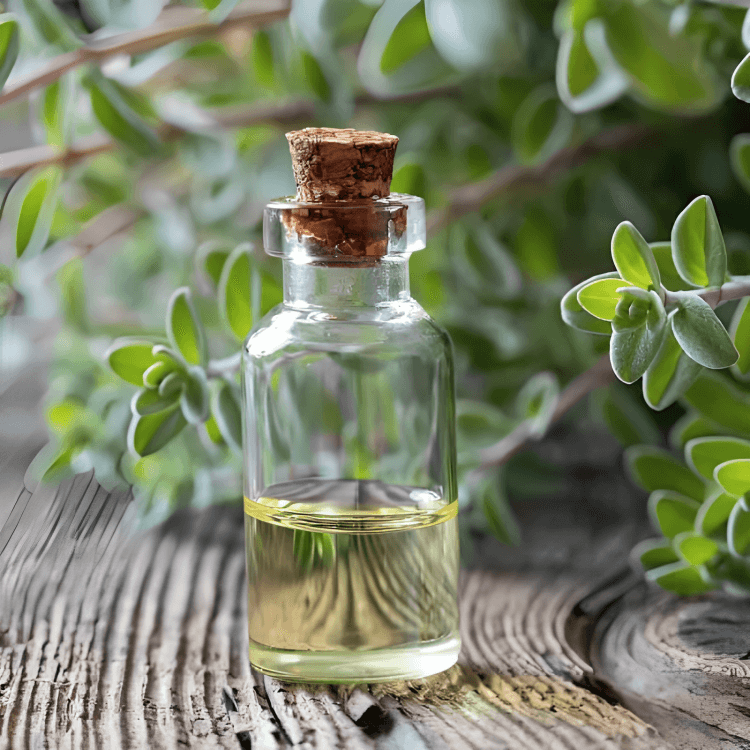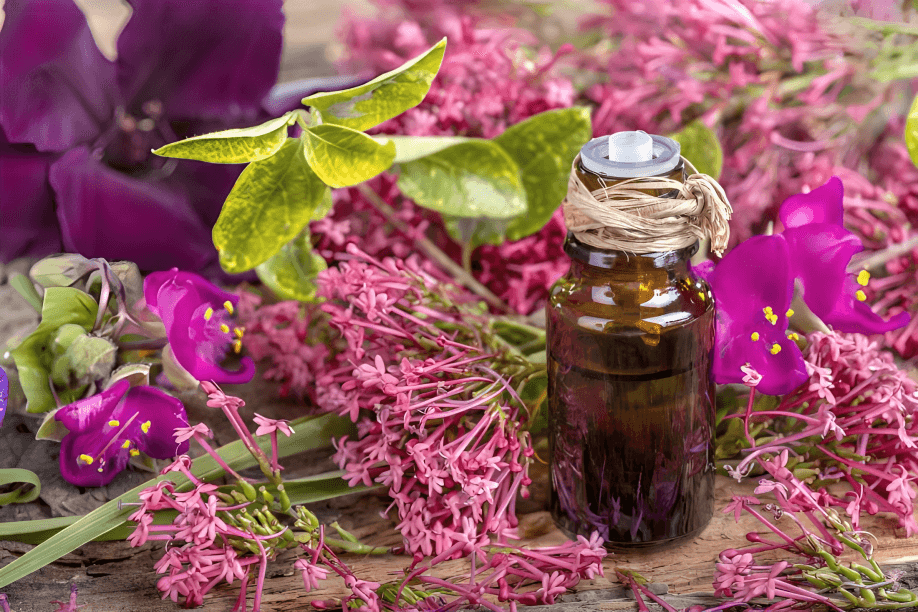
“
Aromatherapy for mental and physical health is a holistic practice that utilizes essential oils to promote overall well-being. By engaging the senses, particularly the sense of smell, aromatherapy can influence the brain's limbic system, which governs emotions and memories. 1
1
”
Dr. René-Maurice Gattefossé, a French chemist, pioneered modern aromatherapy after observing lavender oil's healing effects on burns, leading to its use in stress and pain management. 1
Inhaling lavender essential oil has been shown to reduce anxiety levels by 25%, attributed to its influence on the brain's gamma-aminobutyric acid (GABA) pathways, promoting relaxation. 2

Essential oils used during massage therapy can reduce muscle tension and soreness. Oils like rosemary and marjoram help relieve pain and enhance circulation, accelerating the body’s natural healing process.
Citrus oils such as lemon and orange uplift mood and reduce feelings of depression. They increase serotonin production in the brain, helping you feel more energized and emotionally balanced. 3
When applied topically with carrier oils, essential oils like tea tree and frankincense provide antibacterial and anti-inflammatory benefits that help treat acne, minor cuts, and certain skin conditions effectively. 4
Aromatherapy supports respiratory health. Eucalyptus, peppermint, and tea tree oils can open airways, clear sinuses, and reduce symptoms of congestion, especially when used in steam inhalation or humidifiers. 5
Essential oils like ginger and peppermint can ease symptoms of nausea, motion sickness, and indigestion. These natural remedies work well when inhaled or applied topically to the stomach area. 6
Rose and geranium essential oils promote emotional healing. They help soothe grief and emotional fatigue by calming the nervous system and promoting feelings of love and emotional restoration. 7
Aromatherapy improves cognitive function. Rosemary oil has been shown to enhance memory and alertness, making it a great natural aid for studying, working, or increasing mental performance. 8

For women, essential oils like clary sage and lavender can help regulate hormonal imbalances during menstruation or menopause by reducing cramps, mood swings, and fatigue when applied or inhaled.
Aromatherapy can ease chronic pain. Oils like wintergreen and helichrysum contain compounds that mimic anti-inflammatory drugs, offering relief to people suffering from arthritis, joint pain, or muscle injuries. 9
In hospitals and palliative care settings, aromatherapy is often used to provide comfort to patients. It reduces anxiety, supports sleep, and helps relieve pain without the side effects of heavy medication. 10
Lemon oil can naturally enhance concentration and reduce mental fog. It stimulates the brain’s neurotransmitters and sharpens thinking, making it an ideal oil to use in offices or study areas. 11
Aromatherapy can enhance immunity by activating white blood cells. Tea tree, lemon, and oregano oils have antimicrobial properties that help the body fight off viruses, bacteria, and harmful pathogens. 12

Inhaling calming oils before or after workouts reduces fatigue and speeds recovery. Oils like peppermint boost endurance and help reduce inflammation caused by intense physical activity.
Swiss philosopher and doctor Paracelsus believed in the "spirit of the plant" as a healing force in nature. He promoted aromatic remedies to balance body and mind, like modern aromatherapy. 13
Aromatherapy reduces symptoms of seasonal affective disorder (SAD). Light citrus oils mimic sunlight’s effect on the brain and help lift the gloomy feelings often associated with winter months. 14
In elderly care, aromatherapy helps reduce agitation and confusion in patients with Alzheimer’s disease or dementia, improving their quality of life through calming scents like lavender and lemon balm. 15
Essential oils used in skincare rituals can promote a youthful glow. Oils like frankincense help tighten skin, reduce wrinkles, and promote cellular regeneration, making them popular in anti-aging treatments. 16
Bergamot oil, derived from citrus fruit, is known for balancing mood swings. It’s especially helpful in cases of mild depression, offering a natural alternative to pharmaceutical interventions. 17


